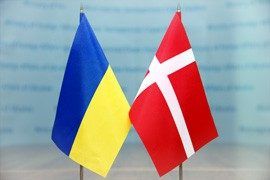Charities have reported continued support by Danes in the form of donations for Ukraine, reports TV2.
The Red Cross alone has received 693 million kroner since the outbreak of the war on 24 February 2022. This figure includes donations from both companies and private benefactors.
“We have never experienced such massive support in a disaster,” said the Red Cross secretary general, Anders Laderkal.
In the first week of the war alone the charity received 200 million kroner. “The amounts have fallen quite a bit since then,” continued Laderkal. “But they are still very high compared to what is normal for wars and disasters. Last week we received 10 million more from Lego.”
Generosity across the board
Other charities report similarly high numbers. Susanne Dahl of Unicef says the organisation received 70,000 donations from private donors in 2022, and that there is no sign of this generosity drying up in the near future.
Save the Children’s head of fundraising, Merete Gotsæd Falkenstrøm, has never seen such a flood of donations: “It beats everything I can remember being a part of. Interest was of course greatest at the beginning of the war, but we continue to experience renewed interest from the Danes.”
Unicef has collected a total of 195 million kroner since the start of the war: 155 million from companies and the rest from private donors. Save the Children has received 40 million, of which the vast majority was donated in the first three months.
Close to home
So why has this war drawn more donations than other disasters? According to Laderkal, the fact that the war is going on relatively close to Denmark is one factor. In addition, “large business interests” have motivated companies and foundations to shell out for Ukraine.
Professor Michael Bang Petersen, a behavioural science researcher at Aarhus University, believes that Danes tend to see the fighting in Ukraine as something more personal than other conflicts or disasters.
“We know that war really is something that activates a willingness to get involved and to help,” he said.
“Even when the media attention has been less intense, citizens have continued to be willing to bear the costs associated with the war. The persistent desire to help is an indication that ordinary Danes also see it as their conflict.”











